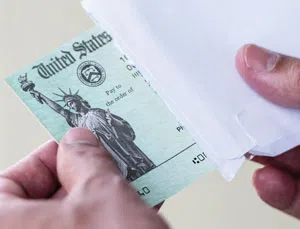The Super Bowl is behind us and the ground hog has seen his shadow. What’s next? For business owners with Dec. 31 close dates, it is time to think about 2007 year-end taxes. There are several points to consider when finalizing your year-end tax planning. In addition to spending time with your CPA for further year-end advice, the following are year-end tax saving strategies to consider:
Close out December 2007 with updated accounting: Having a solid understanding of your company’s financial performance and a good year-end close out is imperative to a year-end tax strategy. Vendor invoices relating to expenses incurred in late-2007 should be recorded as 2007 expenses (assuming you are on an accrual basis.) It is not all that uncommon for vendor invoices to trickle up late. Verify a proper accounts payable cut-off and commit to ensuring all 2007 expenses are booked before calling 2007 closed.
Book inventory adjustments: Be sure to make adjustments to your accounting system that reflect any write-downs of inventory determined to be damaged, obsolete or missing at the end of 2007. Taking the time to conduct a year-end inventory is useless without making the proper adjustments within your accounting system. The decrease in the market value of the reduced inventory can provide your company with added deductions.
Verify a clean year-end cut-off for revenues: Without an accurate work-in-progress schedule, it is possible that invoices were generated in 2007 for work that was later completed in 2008. Double check to be sure that all revenues earned in 2008 are recorded in 2008 and were not erroneously recorded as revenue in 2007.
Review Personal Expenditures: Review all of your personal expenditures to determine whether any of them qualify as employee- or employment-related business expenses. If you have spent your personal funds on behalf of the business, you may have the business reimburse you. If you are an accrual-basis taxpayer, your right to reimbursement may be accrued as an expense for 2007. If you are a cash-basis taxpayer, you can reimburse yourself in 2008 and take a deduction in the 2008 tax year.
Book year-end employee bonuses: If your business operates on the accrual basis of accounting, you may accrue year-end bonuses to be paid to your employees. Doing so, your business will get a deduction for the bonuses in 2007 even though your employees are not paid until 2008. Keep in mind, the accrued bonuses must be paid two-and-a-half months after year end (March 15 in the case of a business with a Dec. 31 year end). If you operate on a cash basis of accounting, the bonuses must have actually been paid by the end of the year to be deducted in that year.
Consider a retirement plan contribution: If you sponsor a retirement plan, such as a pension or profit sharing plan, you can make a contribution for 2007 any time up until the time that you file your 2007 corporate income tax return. This is true whether you are a cash-basis taxpayer or an accrual-basis taxpayer. Many employers decide on the amount of their profit sharing plan contribution after they have calculated their pre-tax profit. The plan contribution will reduce that free-tax profit, perhaps down to zero.
Confirm year-end write-offs: Businesses using the accrual method of accounting are able to deduct bad debts. A business that utilizes the accrual method of accounting recognizes income when a sale is made, not when cash is collected. Therefore accounts receivable on their balance sheet that can potentially go uncollected. The key to writing off and subsequently deducting the write off of an accounts-receivable balance for tax purposes hinges on when the account becomes worthless. Proof of legal action is not required. However, you must show that you have tried to collect the debt and that future payments are unlikely.
Businesses on the cash basis do not book income until cash is collected and therefore cash-basis businesses will not have accounts receivable balances on their balance sheets. Because the cash-basis businesses do not recognize income until it is received, no tax deduction may be claimed when an account is deemed worthless due to the fact that no income for that transaction has been previously booked.
If an accrual-basis business writes off a bad debt then later receives payment on that debt, the income must be recognized when the payment is received.
Verify that all accounts deemed worthless at year-end were written off in 2007.
Section 179 depreciation: Although fixed assets must generally be depreciated, businesses can take advantage of the Section 179 deduction. This allows a business (or self-employed individual) to deduct the full amount of such purchases in the year of purchase. Consult with your CPA about Section 179 limitations as generally restrictions on asset type and total deductions change yearly.
Ask your accountant about Subchapter S Status: As you are reviewing your 2007 taxes, it is a good time to consider whether your corporation should elect Subchapter S status. Subchapter S allows a corporation to be taxed as a sole proprietor or partnership. In certain circumstances, this can provide the business owner with some tax advantages. For example, an S corporation can pay you a portion of your profits as an S corporation distribution, which is not considered compensation and is therefore not subject to the 2.9% Medicare tax. However, whether to change to or from Subchapter S status is a complicated issue. Be sure to consult with a professional tax advisor.
These points will apply differently to each business owner's situation and accounting method. Take the time to review the best strategy with a professional advisor and make the most of the year-end tax planning for your small business.
Mike Coyne, founding partner of the Cleveland-based law firm Waldheger Coyne, contributed to this article.
Brandon Jacob operates Contractors Financial Opportunity LLC (www. Contractorscfo.com), a financial consulting firm that specializes in business valuations, transactional support and exit strategies. Jacob calls upon his 16 years as a CPA as well as industry insight gained as a valuation analyst and acquisition specialist in the hvacr, plumbing and electrical trades. A graduate of Texas A&M University, Jacob brings big business experience and expertise to small business owners who would otherwise never have access to such resources. To contact Jacob: Brandon@Contractorscfo.com.



